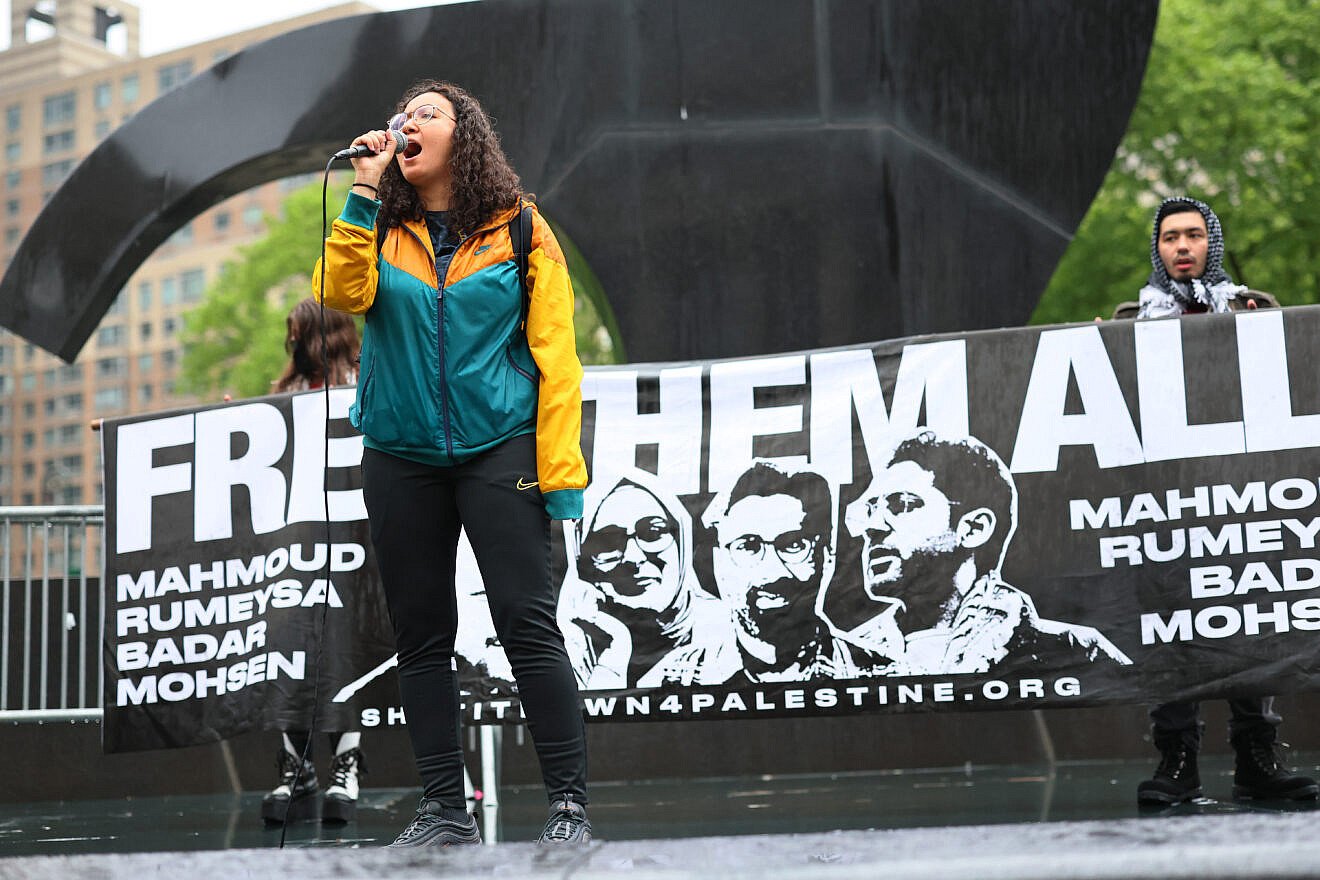 Jonatan Siman Tov, jego żona Tamar, Szahar i Arbel 5,5 letnie bliźniaczki i dwuletni Omer zamordowani w kibucu Nir Oz przez morderców z Gazy.
Jonatan Siman Tov, jego żona Tamar, Szahar i Arbel 5,5 letnie bliźniaczki i dwuletni Omer zamordowani w kibucu Nir Oz przez morderców z Gazy.
 Co łączy rodzinobójstwo, ludobójstwo i media społecznościowe
Co łączy rodzinobójstwo, ludobójstwo i media społecznościowe
Liat Collins
Tłumaczenie: Małgorzata Koraszewska
Masakra 7 października zakończyła się tak okrutnymi wydarzeniami, że stworzono nowe słowo, aby ją opisać: rodzinobójstwo [kinocide].
Zatrzymaj się. Cofnij się o krok. Spójrz na to, co napisałaś. Czy chcesz to powiedzieć i jeśli tak, co to o tobie mówi? Ta rada powinna dotyczyć każdego postu i komentarza w mediach społecznościowych – i oczywiście każdego pisemnego dyskursu, w tym także tego artykułu.
Ostatnio zauważyłam coraz więcej postów w mediach społecznościowych, w których ktoś, kogo profil jest poświęcony przesłaniom o pokoju, czuje się swobodnie, pisząc najbardziej nikczemne tyrady przeciwko Izraelowi, Izraelczykom, Żydom i temu, co teraz zostało nieelegancko skrócone do „Zios” (syjonistów).
Niektóre posty są ewidentnie tworzone przez boty, a nie ludzi; ale za każdym botem kryje się finansowanie i intencja. Intencja postów antyizraelskich jest zła: zatruć umysły. To potężny atak na kraj. Media społecznościowe stały się kolejnym frontem wojny, jakby siedem fizycznych frontów, cyberwojna i wojna prawna nie wystarczyły.
Impulsem do napisania tego artykułu – a słowa „impuls” mógłbym użyć w więcej niż jednym znaczeniu – był długi ciąg komentarzy do artykułu informacyjnego o niedzielnym londyńskim maratonie. A dokładniej, był to raport o dwóch pro-palestyńskich aktywistach z grupy o bardzo roszczeniowej nazwie „Youth Demand” [Młodzież żąda], którzy rzucali czerwoną farbą w proszku, wskakując przed biegaczy przebiegających London Bridge.
Grupa jest najwyraźniej powiązana z ruchem ekologicznym Just Stop Oil, ponieważ intersekcjonalność ma się dobrze w tym równoległym wszechświecie: jeśli chcemy powstrzymać wykorzystanie paliw kopalnych, musimy również wymazać z mapy Izrael (ale nie żaden z arabskich krajów produkujących ropę).
 Protest ruchu Just Stop Oil (źródło zdjęcia Wikipedia)
Protest ruchu Just Stop Oil (źródło zdjęcia Wikipedia)
Nie tylko logika jest pokręcona. Myślenie jest również wypaczone. Pewna komentatorka o żydowskim nazwisku napisała na Facebooku, że „wspierała biegaczkę przebraną za Batmana. Biegła w hołdzie pamięci Sziri, Ariela i Kfira Bibas, dwójki niewinnych dzieci, które kochały Batmana i zostały porwane, a następnie uduszone przez Palestyńczyków w Gazie – ludzi, których reprezentuje Youth Demand”.
Komentarz, w najgorszy sposób mediów społecznościowych, zapoczątkował serię nienawistnych uwag. Jeden przemądrzały dupek – lub przynajmniej dupek i pożyteczny idiota – napisał: „Od kiedy niemowlęta kochają Batmana?” i serię paskudnych komentarzy pod adresem Izraela i IDF. Prawdopodobnie powinnam była posłuchać własnej rady i trzymać się z dala od tej kłótni, ale trudno pozwolić komuś na wyśmiewanie śmierci Izraelczyków w ogóle, a tych dwojga dzieci w szczególności.
Ariela i jego młodszego brata Kfira, którzy zostali porwani 7 października 2023 r. podczas inwazji i mega-okrucieństwa Hamasu i Palestyńskiego Islamskiego Dżihadu, zamordowano w Gazie wraz z matką Sziri. Ich ojciec Jarden został ranny i porwany osobno, i powrócił w lutym na mocy umowy o uwolnieniu zakładników-terrorystów po ponad rocznej niewoli w tunelu terrorystycznym Hamasu.
Napisałam: „Ariel miał cztery lata, kiedy został porwany z domu. Był bardzo entuzjastycznym fanem Batmana. Jego brat Kfir miał zaledwie dziewięć miesięcy, więc masz rację: mógł nie być fanem Batmana, nawet jeśli nosił koszulki z Batmanem. I nigdy nie będzie miał szansy dorosnąć i pokochać Batmana, motyli ani niczego innego, co lubił jego starszy brat. (Kochał psa Tonto, psa uratowanego przez tę rodzinę ze schroniska, którego terroryści z Gazy również zabili.)”
Komentarz o Batmanie był jednym z najłagodniejszych. Wiele komentarzy, zgodnie z powszechnym trendem i papugowaniem kłamstw Hamasu, obwiniało sam Izrael o śmierć chłopców Bibas i ich matki, twierdząc, że zginęli w izraelskim ataku lotniczym. Oskarżenie brzmiało, że izraelskie samoloty nie tylko zabiły zakładników, ale również, że było to celowe.
Zakładając, tylko na potrzeby dyskusji, że raporty z sekcji zwłok przeprowadzonej przez Izrael były błędne i że chłopcy Bibas nie zostali uduszeni (choć wierzę w dowody z sekcji zwłok, które przeczą twierdzeniom terrorystów z Hamasu), nadal nie widzę, w jaki sposób ktokolwiek, kto udaje przyzwoitą, moralną osobę, może usprawiedliwić porwanie tej trójki z ich domu w tę okropną sobotę, Kfira w pieluchach i Ariela ssącego smoczek z wyrazem oszołomienia na dziecinnej, niewinnej buzi.
Inwazja i atak kierowane przez Hamas, wspierane przez Iran, 7 października 2023 r., podczas których 1200 osób zostało zamordowanych, a 250 uprowadzonych do Gazy, zakończyły się takimi okrucieństwami, że stworzono nowe słowo na ich opisanie: rodzinobójstwo.
Słowo to ukuła Cywilna Komisja ds. Zbrodni Hamasu 7 październikaprzeciwko Kobietom i Dzieciom. Jest używane do opisania celowego atakowania rodzin w ich domach – przestrzeni, która ma być bezpieczna – w celu zwiększenia terroru. Terroryści-najeźdźcy celowo torturowali, gwałcili i mordowali członków rodziny na oczach innych, aby nasilić ból; wykorzystując bliskie więzi rodzinne, aby spotęgować horror.
W przemówieniu wygłoszonym na odbywającym się w tym tygodniu w Jerozolimie Międzynarodowym Szczycie Politycznym JNS założycielka i przewodnicząca komisji, dr Cochav Elkayam-Levy powiedziała, że określenie to zostało ustalone wspólnie z międzynarodowym ekspertem ds. praw człowieka i byłym kanadyjskim ministrem sprawiedliwości Irwinem Cotlerem.
Podczas gdy naziści ukrywali swoje zbrodnie, Hamas chwalił się nimi
W przeciwieństwie do nazistów, którzy ukrywali swoje zbrodnie przeciwko ludzkości, terroryści z Hamasu i palestyńskiego Islamskiego Dżihadu chwalili się swoimi. Elkayam-Levy mówiła, że terroryści nagrywali się kamerami GoPro i telefonami komórkowymi i udostępniali nagrania w czasie rzeczywistym. W niektórych incydentach terroryści przesyłali nagrania ataków i morderstw na profile swoich ofiar w mediach społecznościowych, aby ich przyjaciele i rodziny widzieli okrucieństwa w trakcie ich trwania, ale bez żadnej możliwości ich powstrzymania. Dodaj przemoc cyfrową do przemocy fizycznej i emocjonalnej.
Jak powiedziała Elkayam-Levy, morderstwa nie były przypadkowe, lecz dokonywane systematycznie, w celu spotęgowania najbardziej koszmarnych efektów.
Raport komisji zatytułowany “Kinocide: The Weaponization of Families” [Rodzinobójstwo: okrucieństwo wobec rodziny jako broń] można znaleźć na stronie internetowej Instytutu Dvora ds. Studiów nad Płcią i Zrównoważonym Rozwojem, założonego i kierowanego przez Elkayam-Levy. „Raport identyfikuje ‘rodzinobójstwo’ jako problem globalny, wskazując na podobieństwa do podobnych okrucieństw w Iraku, Syrii, Rwandzie, Bośni, Mjanmie i innych strefach konfliktu. Te ustalenia podkreślają pilną potrzebę międzynarodowego uznania i działań w celu zapobiegania i rozwiązywania takiej ukierunkowanej przemocy”, czytamy na stronie internetowej Instytutu Dvora.
Niestety, wciąż dochodzi do straszliwych okrucieństw, w tym masakr w Sudanie i masowych mordów chrześcijan dokonywanych przez dżihadystów w innych częściach Afryki, jednak wydarzenia te przyciągają mniej uwagi mediów i mediów społecznościowych.
Dlaczego terroryści z Hamasu i PIJ chwalili się swoimi zbrodniami, gdy je popełniali? Ponieważ myśleli, że mogą im ujść na sucho – dosłownie morderstwa mogą im ujść na sucho. I do pewnego stopnia, przynajmniej w cyberprzestrzeni i w walce o publiczne postrzeganie, to właśnie im się udało. Masowe protesty przeciwko Izraelowi rozpoczęły się, zanim Izrael zaczął się bronić.
Ich dżihadystyczna inwazja i atak nie są w centrum uwagi świata. To centrum uwagi jest zarezerwowane dla odpowiedzi Izraela. A ciągłe znęcanie się nad pozostałymi zakładnikami – 24 przypuszczalnie żywych z 59 – jest częścią tego zjawiska: terroryści cynicznie publikują rozdzierające serce filmy w ramach wojny psychologicznej, aby zwiększyć ból rodzin i przyjaciół zakładników, i próbują pogłębić rozłamy w izraelskim społeczeństwie wokół dylematu, jak najlepiej poradzić sobie z sytuacją; jak uzyskać uwolnienie zakładników bez narażania kraju w przyszłości z powodu masowego uwalniania terrorystów z izraelskich więzień; i pozostawienia Hamasu u władzy, uzbrojonego i niebezpiecznego.
Używanie mediów społecznościowych w dzisiejszej wojnie jest, w pewnym stopniu, kontynuacją palestyńskich ataków terrorystycznych z lat 70., w tym masakry na Olimpiadzie w Monachium w 1972 r., kiedy terroryści Czarnego Września wzięli członków izraelskiej drużyny jako zakładników, ostatecznie mordując 11 z nich, cały czas wykorzystując uwagę mediów na temat Igrzysk. Palestyńscy terroryści i ich zwolennicy są doskonali w porywaniu ludzi i opinii światowej.
Ale wróćmy do Londyńskiego Maratonu. Antyizraelska akcja PR Youth Demand nie była jedyną zniewagą, jaka dotknęła wydarzenie, które jest poświęcone dobrym intencjom i zbieraniu pieniędzy na cele charytatywne.
Ostatnie praktycznie słowo należało do Nike: w osłupiająco źle pomyślanej kampanii reklamowej firma produkująca artykuły sportowe umieściła na billboardach wzdłuż trasy tablice z napisem: „Nigdy więcej, do przyszłego roku”.
Przekształcenie słów „Nigdy więcej”, powszechnie kojarzonych z obietnicą, że Holokaust się nie powtórzy, w slogan marketingowy, to coś więcej niż zły smak. Kampania marketingowa była wynikiem albo szokującej nieczułości, albo rażącej ignorancji. Tak czy inaczej, jest problem. I trzeba go uznać i rozwiązać, aby „Nigdy więcej” cokolwiek znaczyło.
Liat Collins – Urodzona w Wielkiej Brytanii, osiadła w Izraelu w 1979 roku i hebrajskiego uczyła się już w mundurze IDF, studiowała sinologię i stosunki międzynarodowe. Pracowała w redakcji “Jerusalem Post” od 1988 roku. Przez wiele lat kierowała The International Jerusalem Post. Obecnie na emeryturze.
Zawartość publikowanych artykułów i materiałów nie reprezentuje poglądów ani opinii Reunion’68,
ani też webmastera Blogu Reunion’68, chyba ze jest to wyraźnie zaznaczone.
Twoje uwagi, linki, własne artykuły lub wiadomości prześlij na adres:
webmaster@reunion68.com








